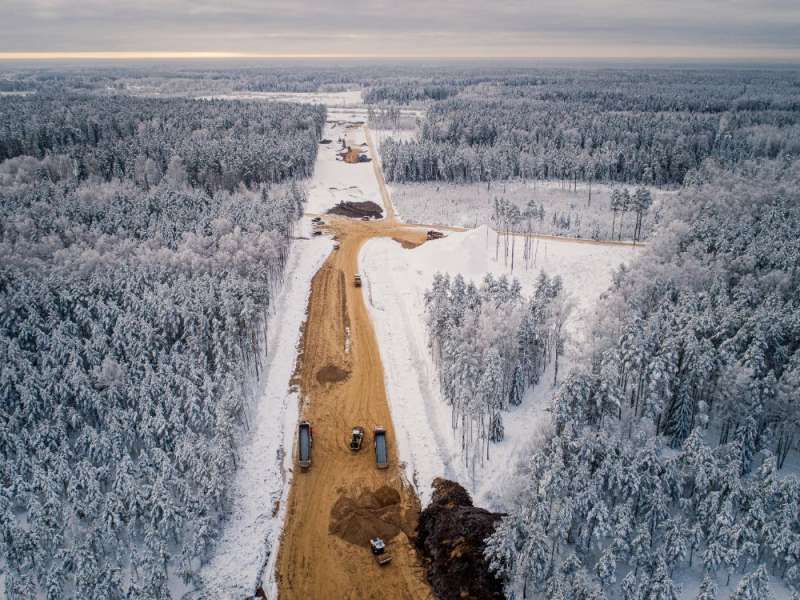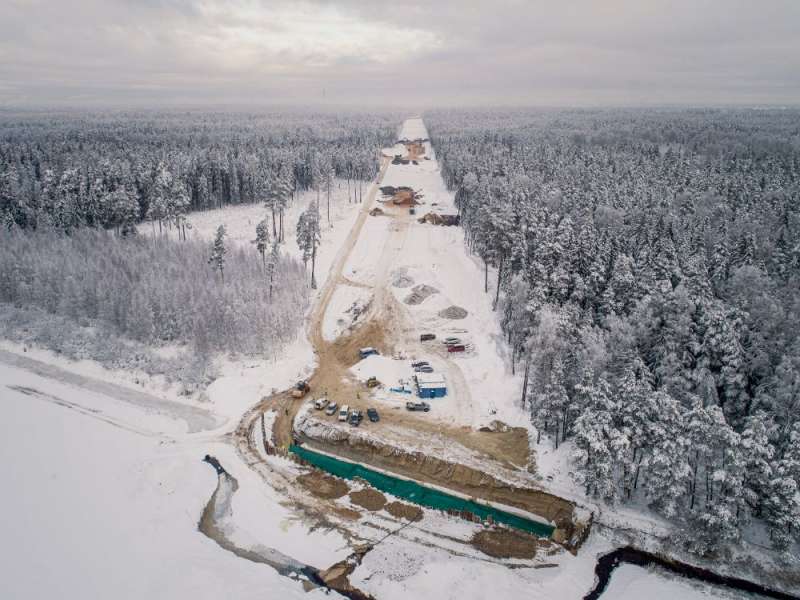
Construction works of Ķekava bypass have started.
In accordance with the planned deadlines, construction works on the section of the main state highway A7 Riga – Bauska – Lithuanian border (Grenctāle) (7.9–25 km) or Ķekava bypass have started.
During the construction works, the materials are delivered along several local roads, which are handed over to the builder.
The construction work is planned to be completed by the end of 2023, while the road will be maintained by the private partner for another 20 years after the completion of the construction work, so the completion of the entire PPP project is planned for 2043.
Kekava bypass in numbers
Implementing the Ķekava bypass project, almost 100 km of strip will be built and 220,000 tons of asphalt will be laid. 450,000 tons of dolomite and granite rubble, as well as 520,000 m3 of sand will also be used in the construction of the track.
For the first time in Latvia, thin-layer asphalt technology will be used for the wear layer of the Kekava bypass, as well as prefabricated concrete culverts designed and manufactured in the Czech Republic with particularly pronounced durability and resistance to aggressive climatic conditions will be used in construction.
The total length of metal barriers along the entire length of the route will reach 40,000 m, but the concrete barrier - 4,000 m. 14 artificial buildings and noise solutions will also be built. Also, during the project, the main water pipeline, gas pipelines and three high-voltage line crossings will be rebuilt, as well as rainwater sewerage networks will be built. Approximately 900 lighting fixtures will be installed.
In order to be able to monitor the newly built road 24 hours a day after the completion of construction works (surface quality, driving conditions, etc.), a traffic control center will be established, consisting of 20 video surveillance cameras, two meteorological stations, ten traffic flow data analysis systems .
In the busiest phase of the construction works, up to 450 people will work on the construction site, as well as more than 100 road transport units and 50 machinery units.
In spring, slowed traffic in the direction of Bauska must be expected
Although traffic and driving speed restrictions have not been introduced at the construction site at the moment, drivers may have to reckon with some inconveniences next spring and plan extra time on the way out of Riga or entering the Bauska highway in Riga.
In order to reduce inconveniences, local bypass roads will be built near Valdlauči and Baloži, along which traffic will be organized. Drivers should also be aware that the organization of traffic may change frequently during construction.

